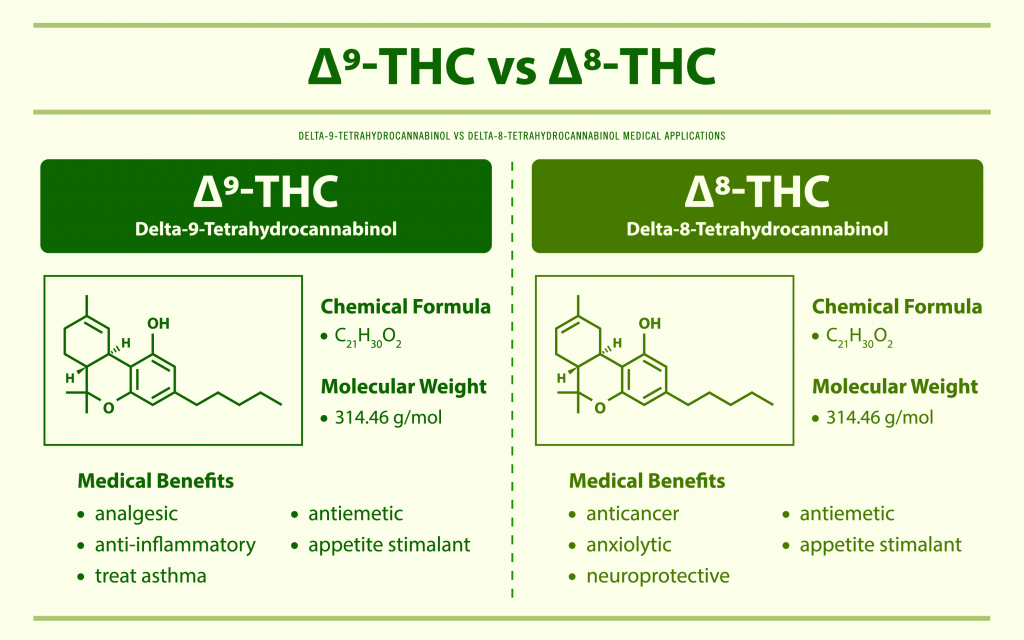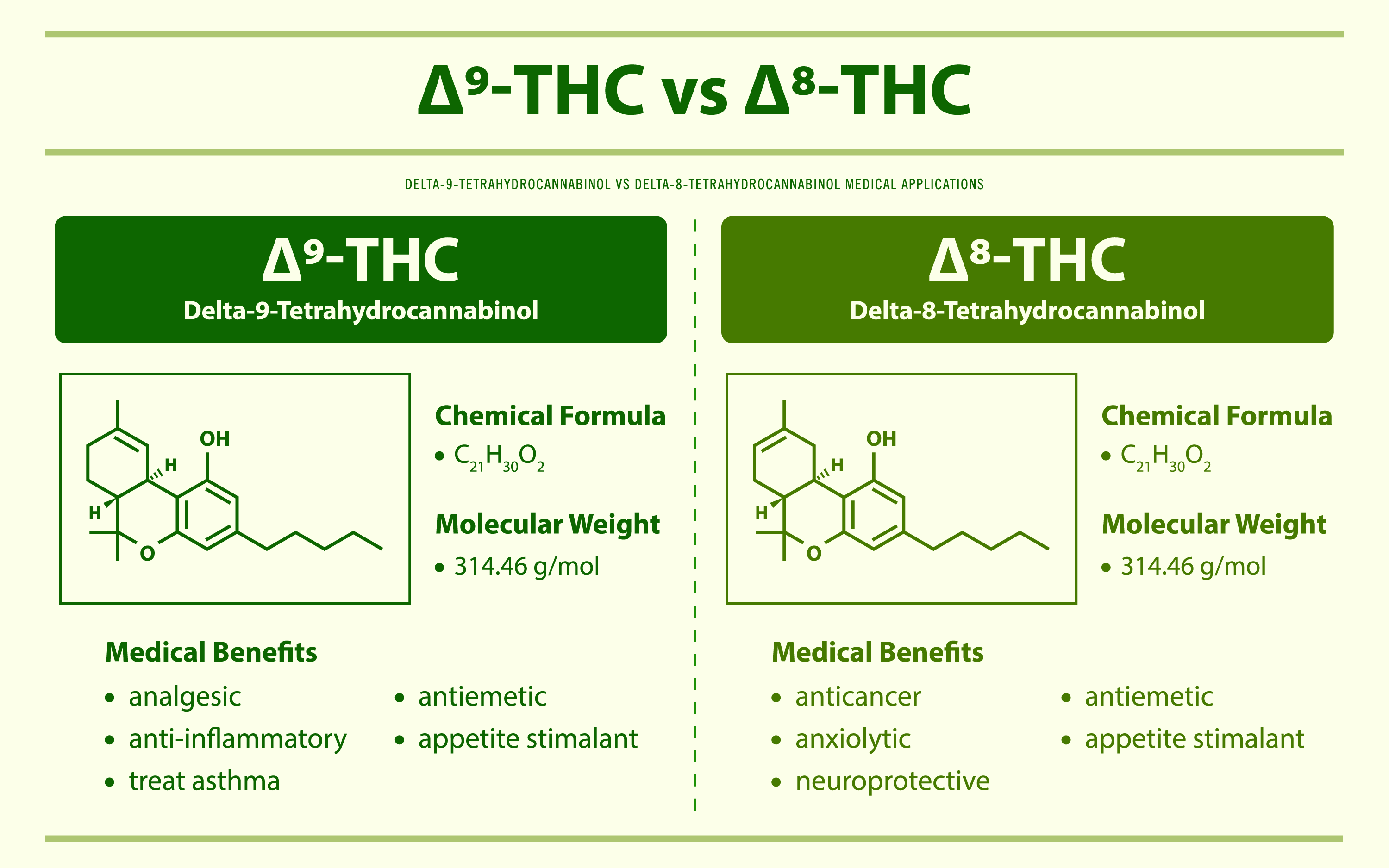
The presence of impurities in delta-8 tetrahydrocannabinol (Δ-8 THC) consumer products has indeed raised concerns. Δ-8 THC is synthesized from cannabidiol (CBD) through a ring closure reaction, often involving harsh conditions. However, this synthesis process can lead to side reactions and the formation of impurities (Ciolino et al., 2021).
A recent study using Nuclear Magnetic Resonance (NMR), high-performance
liquid chromatography (HPLC), and mass spectrometry (MS) investigated ten Δ-8 THC products, including distillates and vaporizer cartridges. The results revealed that these products contain several impurities in concentrations far beyond what is declared on certificates of analysis. Compounding the issue is apparent inadequate testing of these products by producers and independent laboratories.
Since some of the impurities have similar chemical structures to Δ-9 THC, they are identified as Δ-9 THC in many labs as the technique used is not able to separate the impurities from Δ-9 THC.
If you’re seeking reliable testing for your Δ-8 THC products, LAO LAB offers
ISO/IEC 17025 lab certification of analysis, excellent resolution for Δ-9 THC and other cannabinoids, fast turnaround time, and cost-effective services.
1). Ciolino L.A., Ranieri T.L., Brueggemeyer J.L., Taylor A.M., Mohrhaus A.S.
EVALI vaping liquids part 1: GC-MS cannabinoids profiles and identification of
unnatural THC isomers. Front. Chem. 2021;9:746479. doi:
10.3389/fchem.2021.746479.

Leave a Reply
You must be logged in to post a comment.